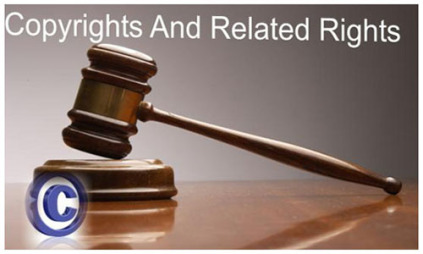“Copyright enables you to make a living off your art,” says Dave Kusek, founder and former CEO of Berklee Online and founder of the New Artist Model online music business course. “When you write or record music you produce more than just a ‘song,’” Kusek expounds. “You also get exclusive rights and no one else can perform actions protected by your rights unless you give them permission.”
Kusek goes on to state that there are two kinds of music copyrights, the composition and the sound recording. Currently within the Eastern Caribbean, through the Eastern Caribbean Collective Organization for Music Rights (ECCO) Inc, focus has primarily been on composition copyrights, through the administration of performance rights. Performance Rights owners [i.e. owner of the copyrights in the music composition] are typically the songwriters, composer and music publishers.
As a Collective Management Organization (CMO) responsible for the administration of performance rights on behalf of songwriters and music publishers, ECCO through reciprocal agreements with other CMOs worldwide, licenses the public use of music. ECCO in turn remits to the composition copyright holders the respective performance rights royalties related to the public use of copyright music.

Directly related to copyrights in the ‘song’ (owned by the songwriters and music publishers), are the rights of owners in the recording of the ‘sound’–the rights of which are typically owned by the recording artist/performer and the master recording owners (usually record label or the executive producer of the recording). Copyrights in the sound recording owned by the performer and record label/executive producer are referred to as Related Rights or Neighbouring Rights. According to a MusicClout.com article, they are called related rights/neighbouring rights because they are said to be directly “related to” performance rights.
Related rights refer to the right to publicly perform or broadcast a sound recording. As with every copyright, owners of those rights are entitled to collect royalties every time the sound recording is broadcast or publicly played. However, it is important to note, that without a collective society or CMO to administer related rights, owners of these rights will find it extremely difficult to self administer their rights in much the same way as songwriters would find it impossible to track performances of their songs, locally, regionally or globally and on the flip side, music users would not be able to cope with having to clear the millions of recordings existing globally as laws demand.
The good news for the Eastern Caribbean is that ECCO has been approached by the International Federation of the Phonographic Industry (IFPI) to collect related rights on their behalf in the OECS. ECCO is currently preparing its Business Plan to set out its financial plan, training for staff and agents, education of the market and identifying owners of the sound recording within the OECS (who will become a new category of members) with a view to ECCO administering related rights in the new year.
What does this mean for music rights holders within the OECS?
As expected, finalization of agreements by ECCO to administer Related Rights will mean that the Eastern Caribbean society will now be able to collect royalties on behalf of a new set of rights owners (performers, and owners of the master recording) who up to now have not been able to benefit from exploitation of the rights in their recordings. Through reciprocal agreements ECCO will also be able to collect royalties for use of its members recordings globally which would usher in a new stream of music industry revenue for OECS rights holders.
Photo Credits:
Photo 1 - Photo Retrieved from www.copyrightsworld.com
Photo 1 - Photo Retrieved from www.cipo.gov.vc
References:
Kusek, D. (2014). Understanding Copyright: 6 Exclusive Rights for Indie Musicians. Retrieved from
https://bandzoogle.com/blog/understanding-copyright-6-exclusive-rights-for-indie-musicians
MusicClout.com (n.d.). What are Neighboring Rights? Retrieved from
https://www.musicclout.com/contents/article-437-what-are-neighboring-rights.aspx











